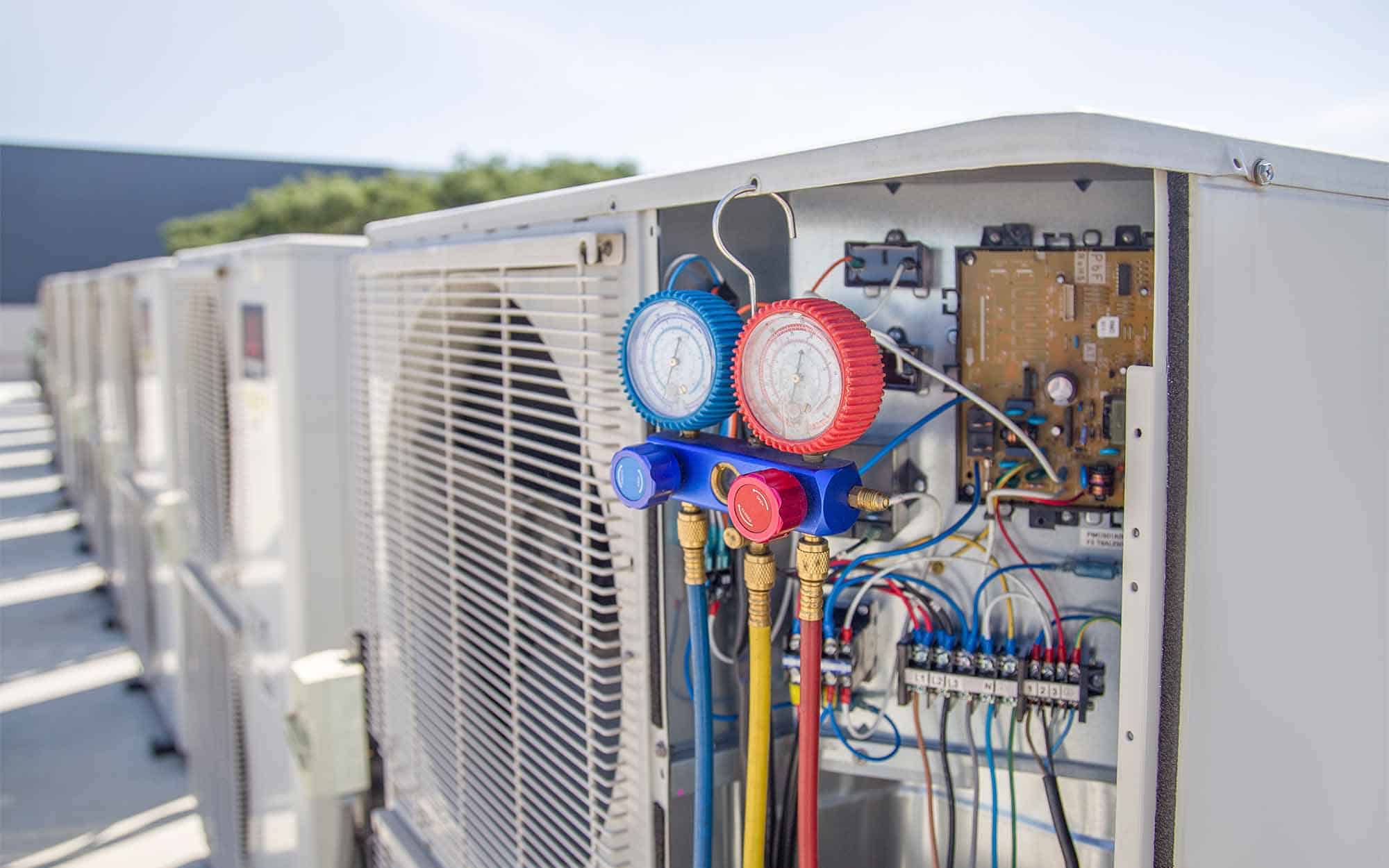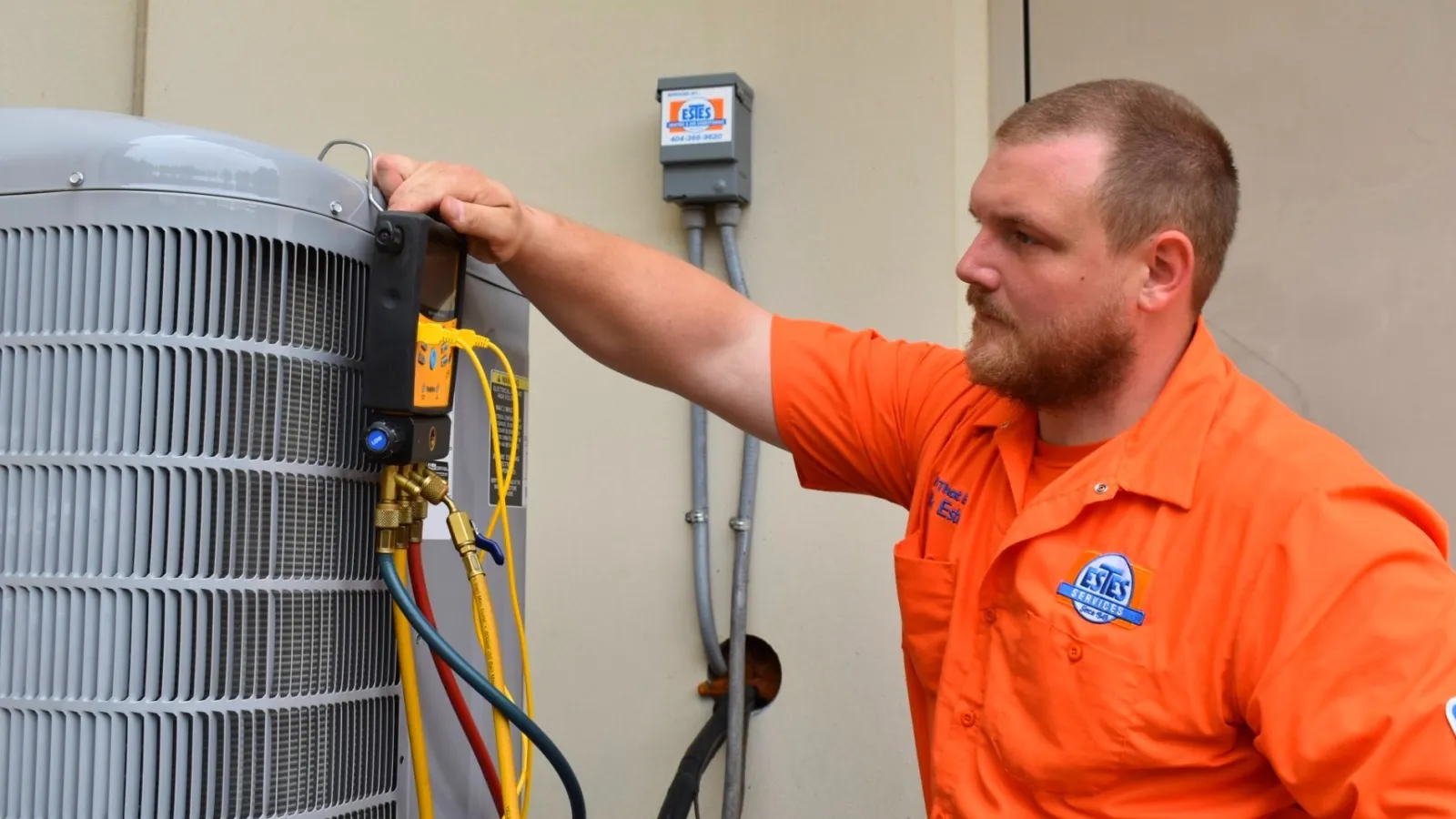Choosing In Between a Heatpump and Furnace: Key Considerations for Your HVAC Demands
When reviewing home heating choices for heating and cooling needs, the decision between a heat pump and a heating system can be complex. Each system offers distinctive benefits tailored to details environments and energy efficiency objectives. Comprehending these differences is important for making an informed option. Secret variables such as installment prices and environmental impact even more make complex the selection procedure. Which choice truly straightens with one's comfort and sustainability choices? The complying with areas will discover these considerations thoroughly.
Recognizing Heat Pumps: Just How They Function and Their Benefits
While numerous house owners consider various home heating options, recognizing how warmth pumps function and their benefits can greatly affect their choice. Warm pumps run by transferring warm as opposed to producing it. In the winter, they draw out warm from the outside air or ground and move it inside, while in the summertime, they reverse this procedure, cooling down the home by getting rid of heat outside. This dual performance makes them flexible for year-round environment control.One of the key benefits of warm pumps is their energy effectiveness. They make use of significantly less power compared to standard home heating systems, potentially leading to reduced utility bills (heat pump service). In addition, warmth pumps have a smaller sized carbon footprint, making them an eco-friendly selection. They also call for much less maintenance than standard systems, adding to lasting cost financial savings. Generally, recognizing the technicians and benefits of heatpump can assist property owners make educated decisions concerning their heating and cooling requirements
Checking Out Furnaces: Types, Procedure, and Advantages
Furnaces can be found in different types, including gas, electrical, and oil designs, each with distinct operational mechanisms. Recognizing these distinctions is essential, as they affect performance and home heating efficiency. In addition, heating systems offer many benefits, such as consistent warmth result and integrity in colder environments.
Types of Furnaces
Furnace can differ significantly in design and operation, with furnaces being a preferred option among home owners. There are a number of kinds of heaters, each using different gas sources and modern technologies. Gas heating systems are typical, leveraging natural gas to create heat successfully. Electric heating systems, on the various other hand, use electric resistance to create heat, typically preferred for their uncomplicated installation. Oil heaters, while much less usual, are effective in areas with restricted gas access (heat pump replacement ooltewah tn). In addition, condensing furnaces make best use of energy performance by reusing and capturing exhaust gases. Each type operates with a system of warm exchangers and ductwork to disperse warm air throughout a home. Understanding the distinctions between these heating system kinds is important for educated cooling and heating decisions
Benefits of Heating systems
For home owners seeking trusted heat during cool months, the advantages of heaters are considerable. Heating systems provide constant heating, making certain even temperatures throughout the home. They are specifically effective in severe cold, typically surpassing warmth pumps in cold conditions. Different types, including gas, electric, and oil furnaces, provide adaptability to fulfill varied needs and preferences.Furnaces additionally have a tendency to have reduced first installation costs contrasted to warm pumps, making them a more easily accessible option for numerous. Their durable layout contributes to a much longer life expectancy, with several units lasting over 15 years with appropriate maintenance. Furthermore, modern-day heaters are usually equipped with sophisticated technology for enhanced effectiveness, which can cause lowered power bills. On the whole, heating systems continue to be a trustworthy choice for efficient home heating.

Power Efficiency: Contrasting Warm Pumps and Furnaces
When comparing power effectiveness between warm pumps and heaters, the Seasonal Power Efficiency Proportion (SEER) plays an important role in identifying performance. Additionally, an operational price analysis discloses the long-term monetary ramifications of each system. Comprehending these variables can direct house owners in making educated decisions concerning their home heating remedies.
Seasonal Power Effectiveness Proportion
Energy performance plays a necessary function in the decision-making process between heatpump and heating systems, particularly when thinking about the Seasonal Energy Effectiveness Proportion (SEER) This metric steps the cooling efficiency of warm pumps over an entire cooling period, providing a standard method to evaluate performance. Higher SEER rankings indicate better energy performance, converting to lower power usage and lowered utility expenses. In comparison, heaters are typically analyzed making use of the Annual Gas Use Performance (AFUE) rating, which mirrors heating effectiveness. When contrasting these two systems, homeowners need to focus on SEER ratings for warmth pumps, as they directly impact overall power cost savings and ecological sustainability. A thorough understanding of SEER can especially influence the long-lasting complete satisfaction and cost-effectiveness of the picked a/c remedy.
Operational Cost Analysis
Recognizing the operational prices associated with heatpump and heating systems is important for home owners assessing their choices. Heatpump normally supply higher energy performance, transforming electric energy into heat with marginal waste. This results in lower regular monthly utility costs, specifically in modest climates. Alternatively, conventional heaters, specifically gas models, may have reduced in advance expenses but can incur greater operational costs gradually as a result of fuel rates and effectiveness ratings.Moreover, warm pumps can work as both heating and cooling down systems, potentially reducing the demand for different a/c devices. While preliminary investments for heatpump might be greater, their long-term cost savings in energy effectiveness can make them a more economical option for lots of homes. Careful analysis of regional energy rates is important to establish the most effective alternative.
Installation Expenses: What to Expect for each and every Furnace
Setup expenses for furnace can vary significantly between warmth pumps and furnaces, influencing property owners' decisions. Heatpump normally have higher ahead of time installation expenses, commonly varying from $3,500 to $8,000, depending upon the system size and intricacy of installment. This consists of the outdoor device, indoor handling system, and necessary ductwork modifications. On the other hand, furnaces often tend to have lower first prices, balancing between $2,500 and $6,000, which can be appealing for budget-conscious property owners. Installation costs can enhance if substantial ductwork is required.Moreover, the choice of fuel type for heating systems-- all-natural gas, propane, or electrical-- can likewise influence installation expenses. While heatpump provide energy efficiency, their initial financial investment may hinder some buyers. Inevitably, reviewing setup costs why not look here alongside long-term cost savings and efficiency will help home owners in making educated choices regarding their home heating systems.
Climate Considerations: Which System Performs Much Better in Your Area
Just how do climate conditions affect the efficiency of heater? The efficiency of heatpump and furnaces can vary greatly relying on the neighborhood climate. In moderate environments, heatpump excel by efficiently transferring warmth from the outside air, making them an energy-saving choice. Their performance decreases in exceptionally cool temperature levels, where they click for info might have a hard time to extract sufficient heat. Conversely, furnaces, specifically gas designs, provide consistent and trusted warm no matter exterior problems, making them better in cooler regions.In areas that experience milder wintertimes, heat pumps can operate successfully year-round, supplying both cooling and heating. In contrast, regions with rough winter seasons commonly gain from the toughness of heaters. Ultimately, understanding the regional climate is crucial when determining between a heatpump and a heating system, as it directly affects their operational effectiveness and total efficiency.
Maintenance Requirements: Long-Term Care for Heat Pumps vs. Furnaces
While both heatpump and heating systems need normal upkeep to assure peak performance, their details demands and treatment routines differ considerably. Furnaces normally need much less constant focus, with annual examinations being sufficient to look for gas leakages, clean filters, and examine overall performance. Their simpler layout often allows for uncomplicated repairs.In comparison, heatpump require biannual upkeep because of their double role in heating & cooling. This consists of cleaning coils, examining cooling agent levels, and ensuring that both the outdoor and interior units operate at their best. Furthermore, heatpump upkeep typically entails more complex components, making professional maintenance essential.Neglecting upkeep can bring about lessened efficiency and enhanced energy prices for both systems. Ultimately, home owners must think about these long-term treatment requirements when choosing in between a heatpump and a furnace, as positive maintenance can expand the life-span and performance of either system substantially.
Environmental Influence: Picking a Lasting Heating Choice
The environmental impact of heating systems is a crucial evaluation for property owners seeking lasting options. Heatpump are generally a lot more energy-efficient than standard furnaces, as they transfer warmth instead of generate it, greatly minimizing carbon exhausts. By using renewable energy resources, such as geothermal or air-source heatpump, property owners can even more reduce their environmental footprint.On the other hand, all-natural gas heaters emit greenhouse gases and add to air pollution, though they usually provide higher warmth result. Developments in technology have led to the development of high-efficiency heating systems that minimize emissions.Ultimately, picking a heating system includes evaluating efficiency against environmental impact. Property owners are urged to mirror on local power sources and motivations for renewable systems, making certain an option that lines up with both personal convenience and environmental obligation. The decision influences not only prompt convenience but additionally long-term sustainability and environmental health.
Regularly Asked Concerns
How Much Time Do Warmth Pumps and Furnaces Typically Last?
The life expectancy of heatpump normally varies from 15 to 20 years, while furnaces can last in between 15 to thirty years. Regular upkeep significantly influences their durability and performance in giving heating solutions.
Can I Use a Heatpump in Incredibly Cold Climates?
Heatpump can operate in exceptionally cold environments, however their effectiveness reduces as temperature levels decrease. In such conditions, extra heating resources may be needed to preserve comfortable indoor temperatures and guarantee peak performance.

What Is the Noise Degree of Warmth Pumps Versus Furnaces?
The sound degrees of heatpump and heating systems differ substantially. Generally, warmth pumps run more quietly than conventional heating systems, making them preferable for those delicate to appear, while heating systems might create louder operational noises throughout heating cycles.
Are Warm Pumps Suitable for Both Heating & Cooling?
Warm pumps are certainly suitable for both heating & cooling (heat pump replacement ooltewah tn). They work by moving warm, providing reliable temperature level control year-round, making them a versatile choice for property owners seeking an all-in-one cooling and heating option
What Size Home Heating System Do I Required for My Home?
Figuring out the proper dimension home heating system for read this post here a home calls for assessing aspects such as square video, insulation high quality, neighborhood environment, and the home's format. Consulting an expert can guarantee an exact assessment and suitable comfort. Warm pumps generally supply greater energy effectiveness, transforming electric power into heat with minimal waste. In modest environments, warmth pumps excel by efficiently moving heat from the outside air, making them an energy-saving option. Alternatively, furnaces, particularly gas designs, supply trustworthy and regular warm no matter of exterior problems, making them better in chillier regions.In areas that experience milder winter seasons, heat pumps can run successfully year-round, giving both home heating and cooling. Warmth pumps are generally more energy-efficient than conventional heaters, as they move warmth instead than create it, significantly decreasing carbon discharges. By using sustainable power sources, such as geothermal or air-source heat pumps, property owners can better decrease their eco-friendly footprint.On the various other hand, all-natural gas heaters send out greenhouse gases and add to air contamination, though they usually provide greater warm result.
Comments on “Key Information Before Installing ductless mini splits”